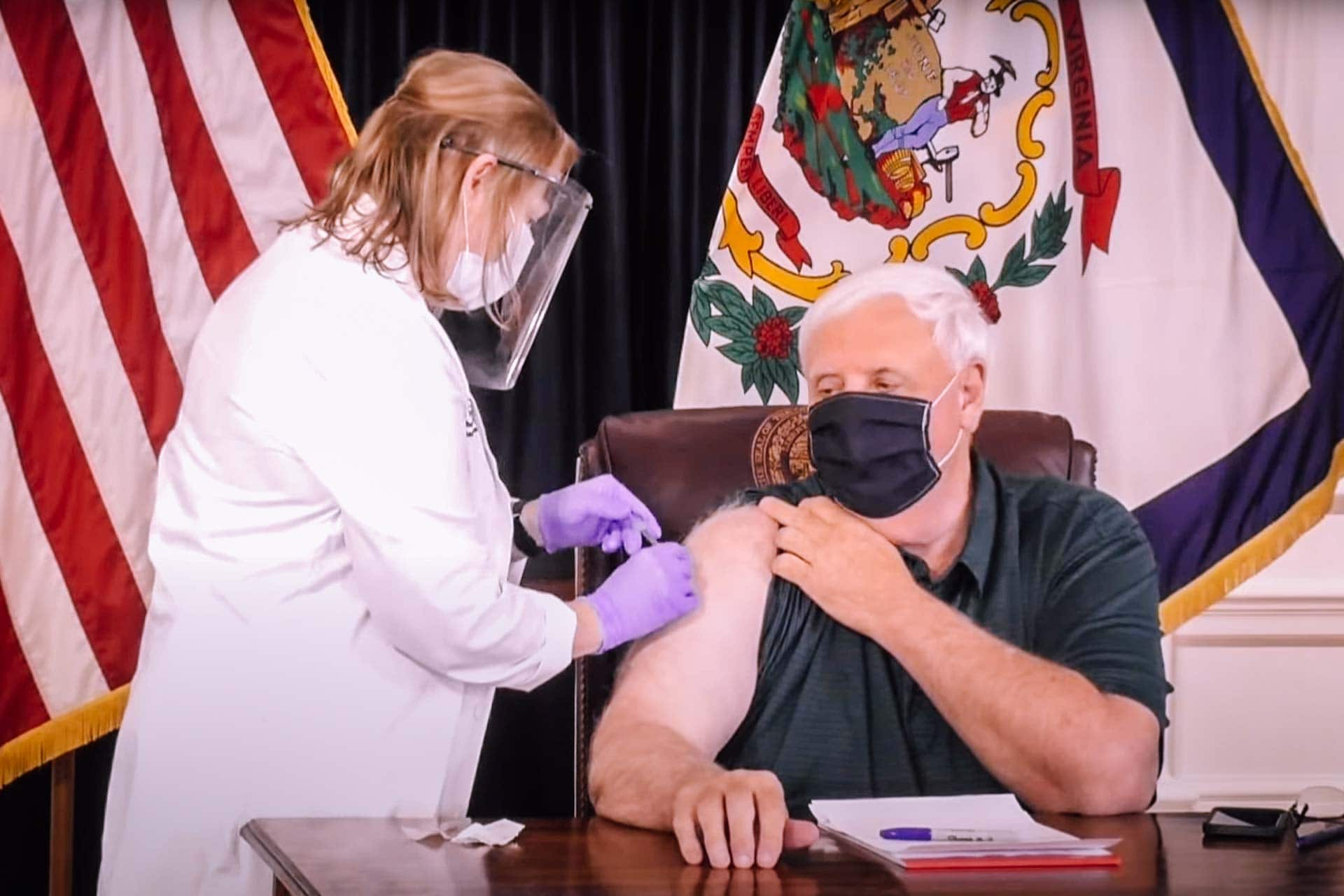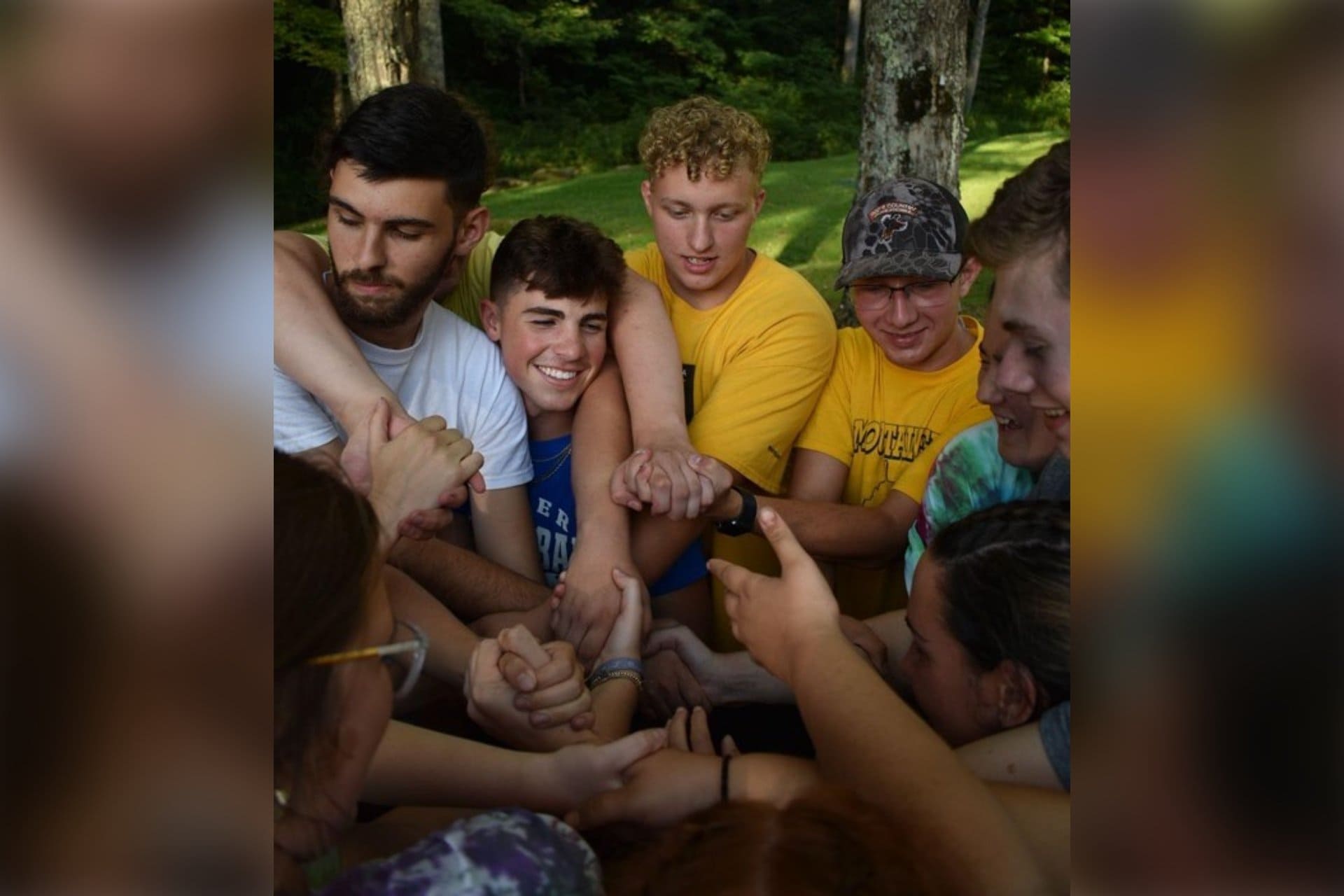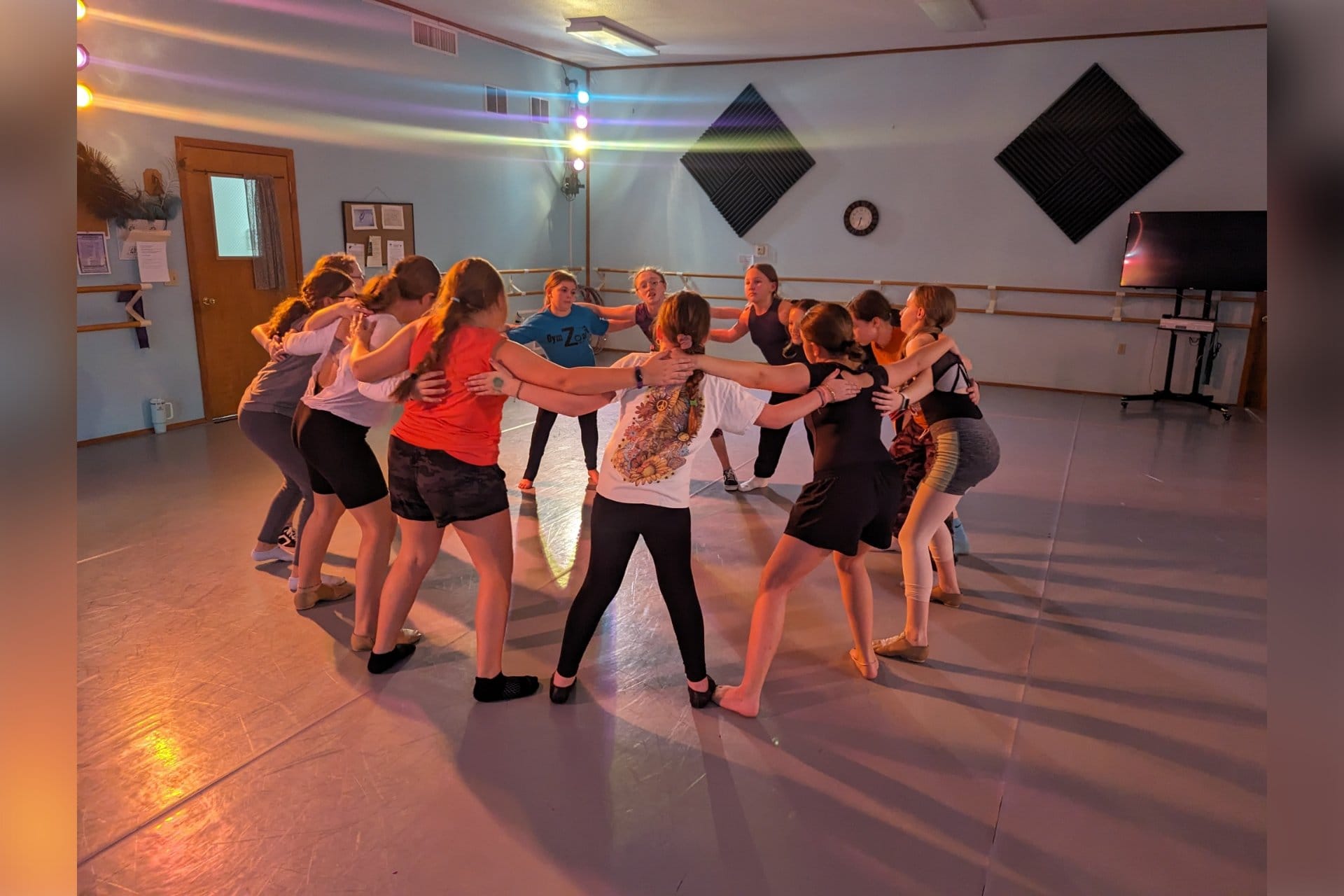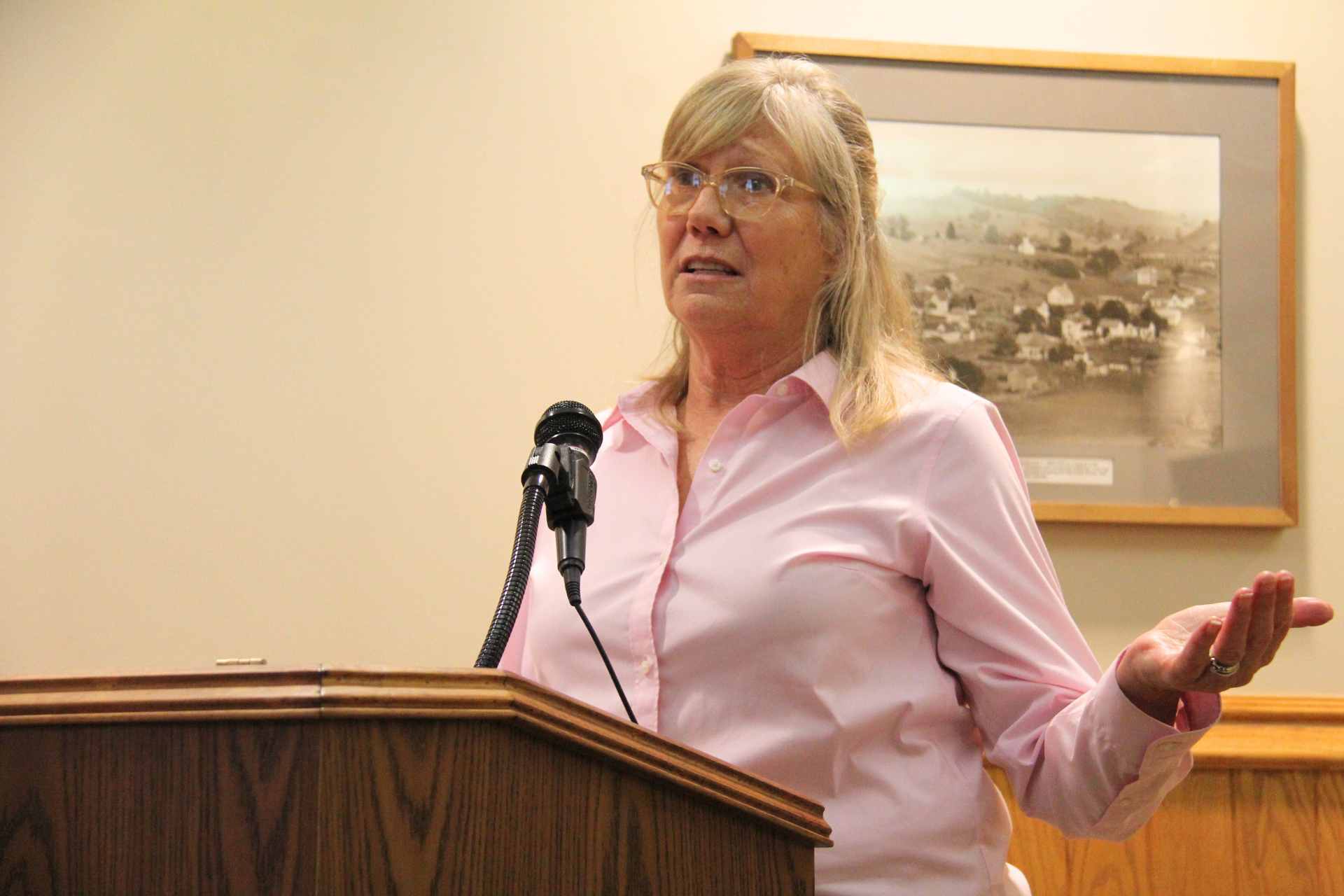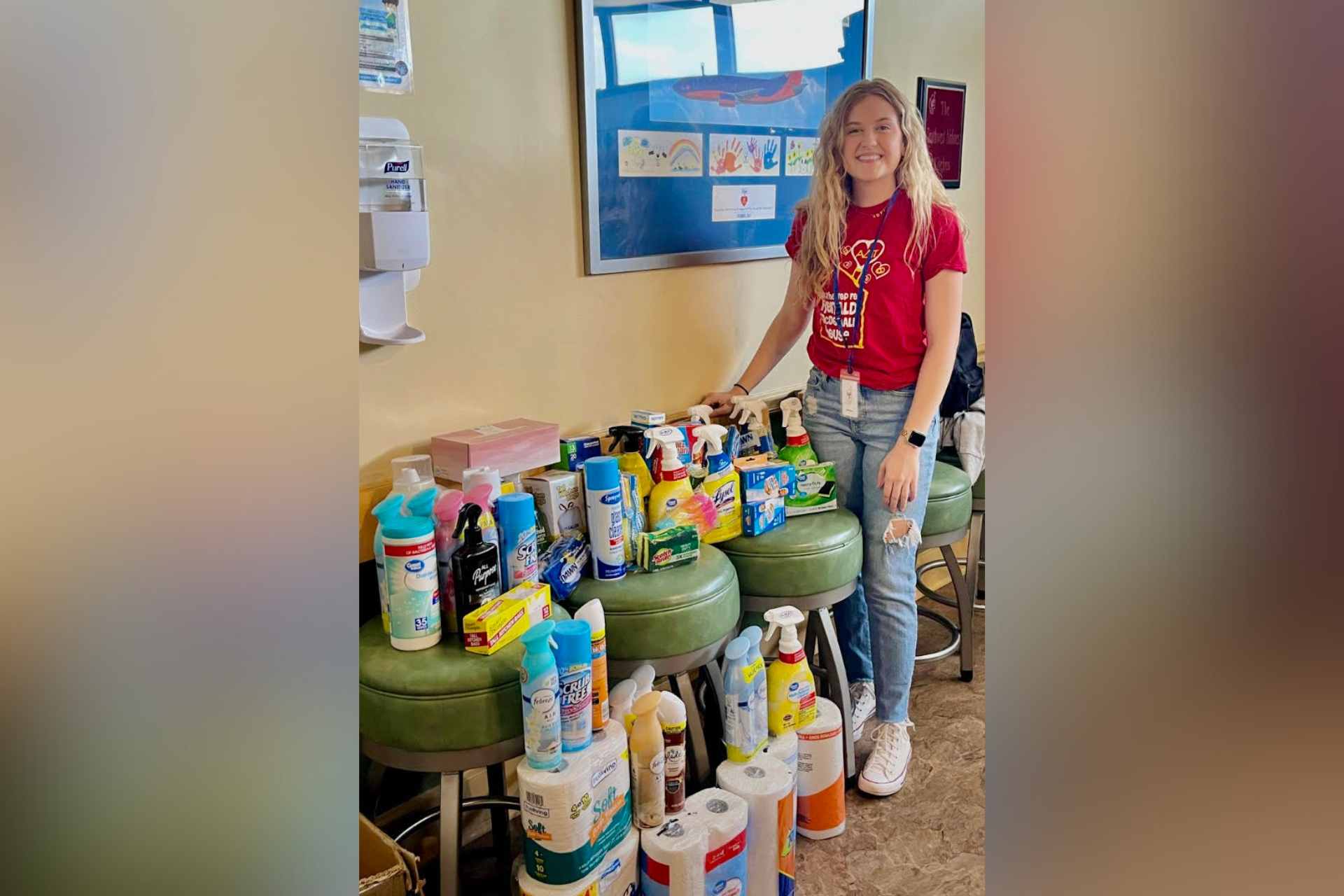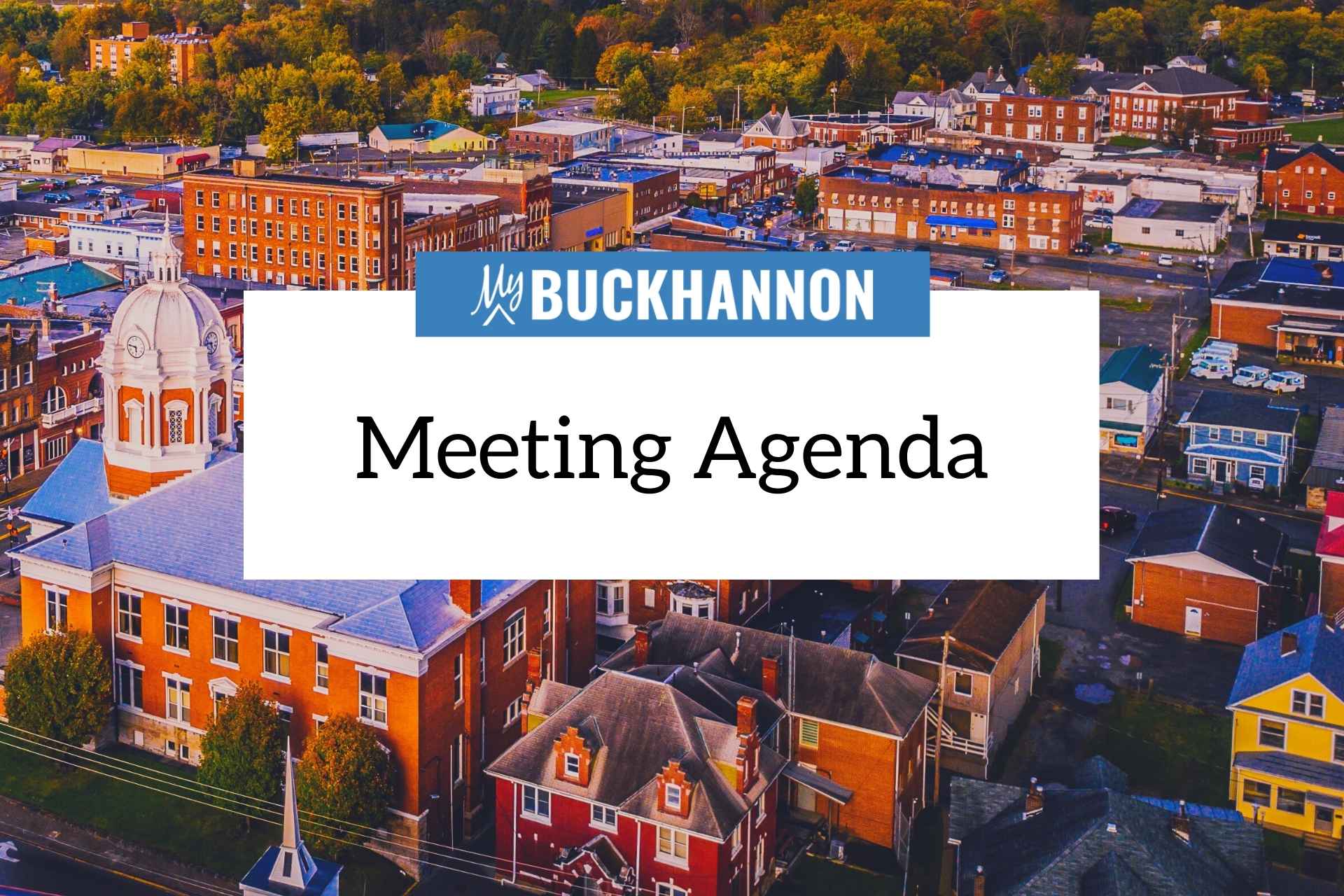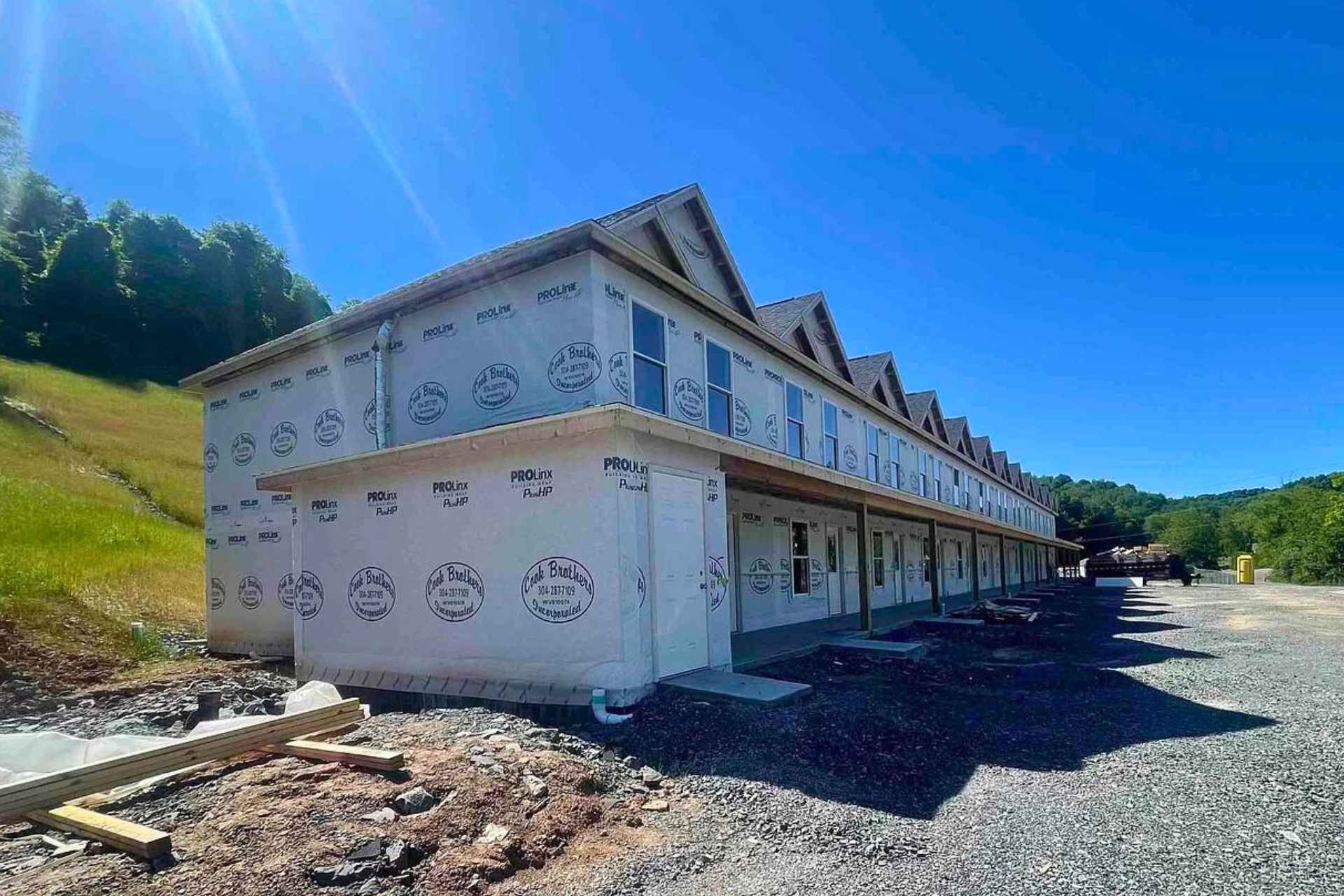CHARLESTON – Touting the arrival of the COVID-19 vaccine in the Mountain State as an “unbelievable accomplishment,” the governor of West Virginia himself received the vaccine during a live press briefing on Monday evening.
“This is a great, great, great day and a whale of an accomplishment,” Justice said, prior to receiving the first dose of the Pfizer/BioNTech COVID-19 vaccine, which must be taken about three weeks apart. “This is going to stop this thing (the pandemic) in its tracks.”
Following the U.S. Food and Drug Administration’s emergency authorization of the vaccine late Friday, Dec. 11, vaccines were shipped out Sunday and arrived early Monday at two hubs in Monongalia and Kanawha counties.
Thanking the West Virginia Army National Guard, Dr. Deborah Birx, the U.S. government’s coronavirus response coordinator, and the administration of President Donald Trump, Justice and the state COVID-19 task force received the initial dose of the vaccine publicly to bolster public confidence in the vaccine’s safety and effectiveness.
“In the State of West Virginia, the first vaccines were given at ThomasHealth in South Charleston,” he said.
According to officials at ThomasHealth, who joined Justice’s team virtually, Dr. Kishore Challa, M.D., was the first person in West Virginia to receive the vaccine.
During the evening briefing, Maj. Gen. James Hoyer with the West Virginia Army National Guard said two distribution sites had been established in the Mountain State, including one in Kanawha County and another in Monongalia County. From those sites, the National Guard will deliver vaccines to 38 hospitals, 27 of which have already received them.
“Some have already started the process of vaccination,” Hoyer said Monday evening.
During his first press briefing of the day, both Justice and COVID-19 czar Marsh emphasized how important getting vaccinated is for people ages 50 and over.
“The age of people who get infected with COVID-19 is the single biggest predictor of death,” Marsh said.
Citing information published by the U.S. Centers for Disease Control in August, Marsh said that compared to people ages 18-29, people 50-64 years old have a 30 times higher risk of dying.
“People 65 to 74 years old have a 90 times higher risk of dying, people ages 75 to 84 have a 200 times higher risk of dying, and people who are 85 and older have a 630 times higher risk of dying,” Marsh warned.
The state’s COVID-19 czar said that data bears out in West Virginia, too, noting that 77.5 percent of deaths from COVID-19 can be attributed to people ages 70 and older.
That’s why once the state makes vaccines available to hospital workers in critical care and specialty units, long-term care residents and long-term care staff, people ages 50 and over in Phases 1-C and 1-D of the vaccine distribution plan (see this article for a more detailed breakdown of the phases) will have priority.
“Once we get to acute care hospital workers, nursing home and first responders, and we move to other hospital workers and vital industry sectors, we’re really going to focus on the over-50-year-old age group because if we can vaccinate people over 50 then we will basically account for 97 percent of all of our deaths,” Marsh said. “So, targeting that group will save lives but it will also reduce that pressure on hospital beds because these are also the people who get sicker and need to go to the hospital.”
Marsh noted Birx, who traveled to West Virginia Monday to consult with Justice’s administration, had been “very pleased” with West Virginia’s vaccination distribution plan.
Justice also highlighted the four key goals guiding vaccine distribution: reduce the rate of hospitalizations, reduce the rate of deaths, protect the state’s most vulnerable, populations and maintain acute critical care services.
Sounding more hopeful than in recent press briefings, Justice said, “I have all the faith that I can possibly have that this vaccine will work and that this vaccine is safe. This will absolutely break its back.”
However, the governor also sounded a cautionary note, urging people to continue wearing masks or face coverings until they and all members of their household are vaccinated.
“Until you and the people who live with you are vaccinated, please continue to wear your mask,” Justice said. “Please do everything you can not to get this and not to spread it.”
Justice thanked Hoyer and the Army National Guard, which celebrated its 384th birthday Monday.
“They’ll do this vaccine mission, and they’ll do it with pride,” Justice said. “I am so proud of them – they’re just the absolute best you could imagine.”
